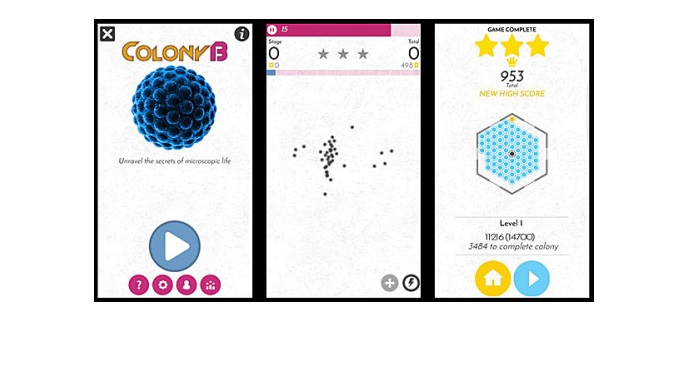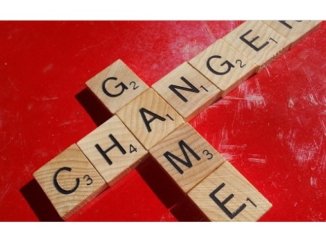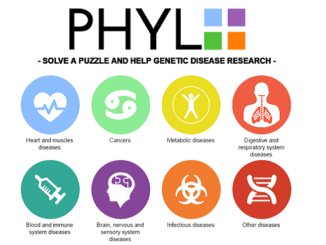
Nearly 8,500 “citizen scientists” have sent in stool samples and lifestyle information to the American Gut Project to learn more about their microbiomes — the unique combinations of microbes that inhabit our bodies — and contribute their data to microbiome research. But given the sheer numbers and varieties of microbes that help make up who we are, it’s difficult for researchers to determine which microbes may be affected by particular aspects of our habits and how, in turn, they affect our health.
To overcome this problem, researchers developed Colony B, an app that is both a fun game and a way “citizen scientists” can contribute to microbiome data analysis.
The American Gut Project was co-founded by Rob Knight, PhD, professor and director of the Center for Microbiome Innovation at University of California San Diego, and is managed by Embriette Hyde, PhD, assistant project scientist at UC San Diego School of Medicine.
In collaboration with Knight and Hyde, a team led by Jérôme Waldispühl, PhD, associate professor of computer science at McGill University, created the Colony B game to help scientists better understand how particular microbes may be linked to our habits and ultimately our health.
Here’s how the game works: Players circle groups of dots to build colonies of certain types of bacteria. These dots represent people with similar bacterial profiles. Unlike computers, humans can do this intuitively and can quickly recognize when an image contains a cluster of dots. The computer can then, in turn, correlate this information with the survey data that has been gathered about the participants’ lifestyles and health. As people play, they are helping scientists identify which microbes may be related to various aspects of human health in ways that couldn’t be done otherwise.
“Let’s say that, thanks to the stool samples and information gathered by the American Gut project, we know the amount of microbes of type A and B found in several individuals,” Waldispühl said. “Some of these individuals may be healthier than others. If you plot this data on a graph, you might notice that sick participants have more of certain kinds of microbes and less of others than healthy participants. This suggests a possible relationship, either cause or consequence, between the composition of the microbial flora and health. But it remains difficult to determine which of these microbes, either type A or B, are important to human health — and that’s where the game comes into play.”
Scientists are increasingly making links between the range of colonies of microorganisms that live on and within us, our lifestyle habits, and our health. Some suggest that diseases as varied as obesity, inflammatory bowel syndrome and autism may be linked to the microbes that we harbor — though more research is needed to understand how our habits may encourage certain bacteria to either proliferate or decrease in number and how this may in turn affect our health.
“One thing that is improving but we continue to hit up against regularly is a lack of awareness and understanding of the microbiome outside scientific circles,” Hyde said. “What we glean from microbiome research has the potential to impact everyone, in all walks of life, and so we have a really strong drive to improve the way we inform and educate people about the microbiome. Gamifying is such a cool way to get people involved — it’s fun for them, and they are also contributing to science in a real, meaningful way. It’s a win-win for everyone!”
To join the American Gut Project, go to: americangut.org
To play Colony B, download the app from Google Play or the Apple App Store
To learn more about the game, visit: colonyb.com
This article was published on UC San Diego Health Sciences News
http://ucsdhealthsciences.tumblr.com/post/149811231500/gaming-for-gut-research-nearly-8500-citizen


